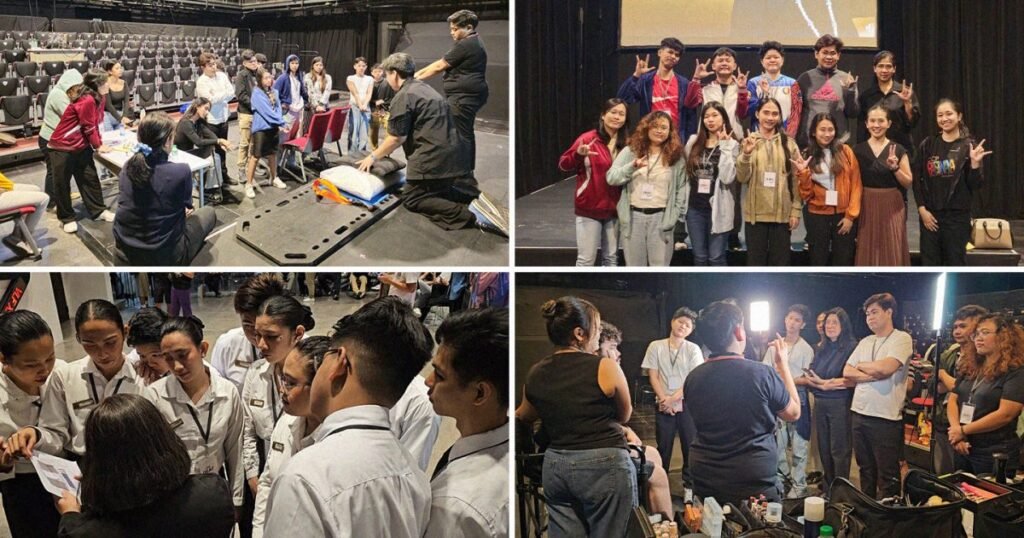MANILA, PHILIPPINES — Staying true to its vision of transforming lives through the arts, the Cultural Center of the Philippines (CCP) recently welcomed participants from the deaf and hard-of-hearing community into its Front-of-House (FOH) Apprenticeship Program.
Now on its latest run, the initiative organized by CCP’s Venue Operations Division continues to provide opportunities for differently-abled youth, equipping them with training in arts management, theater operations, and frontline service. This year’s program saw the participation of 10 deaf and hard-of-hearing apprentices, each eager to immerse themselves in the world of performance venues and cultural work.
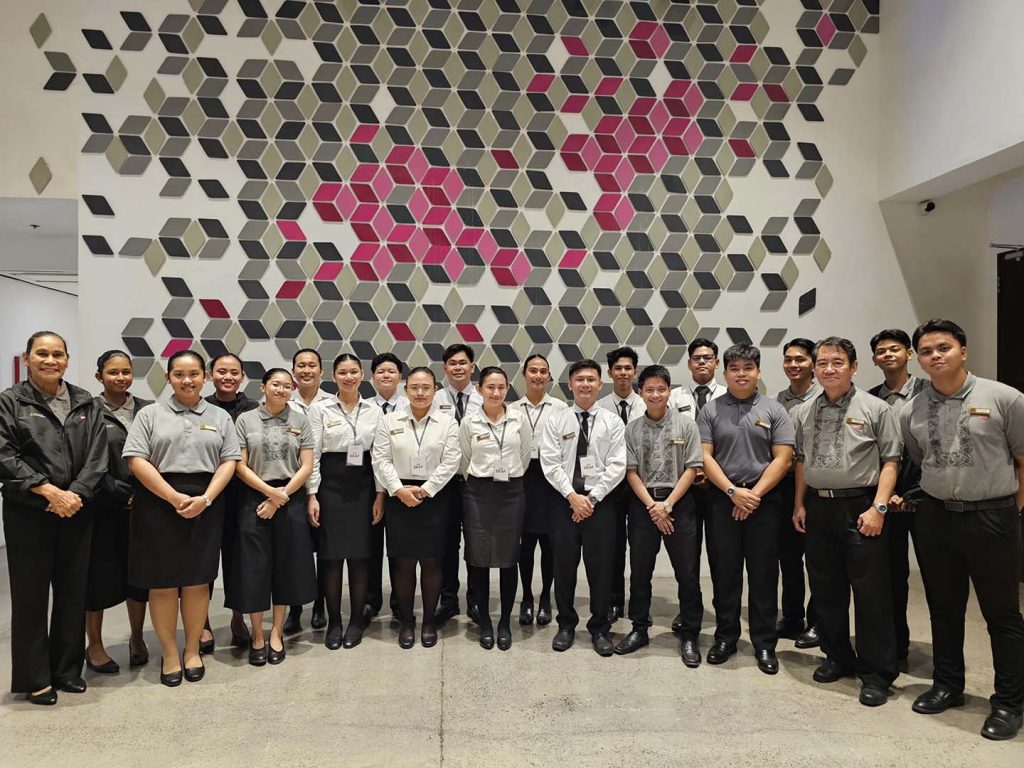
The program was made possible through CCP’s long-standing partnership with the Philippine School for the Deaf (PSD), which endorsed most of the participants and provided teacher-interpreters during sessions. For the 2025 edition, the Philippine Registry of Interpreters for the Deaf (PRID) also joined hands with CCP, with executive director Pinky Earnhart and Dean Dimaguila deploying interpreters to ensure seamless communication throughout the workshops.
In just two weeks, the apprentices underwent a series of lectures and hands on workshops covering both FOH and technical aspects of theater operations. From ushering to backstage coordination, the program broadened their understanding of how live productions come to life.
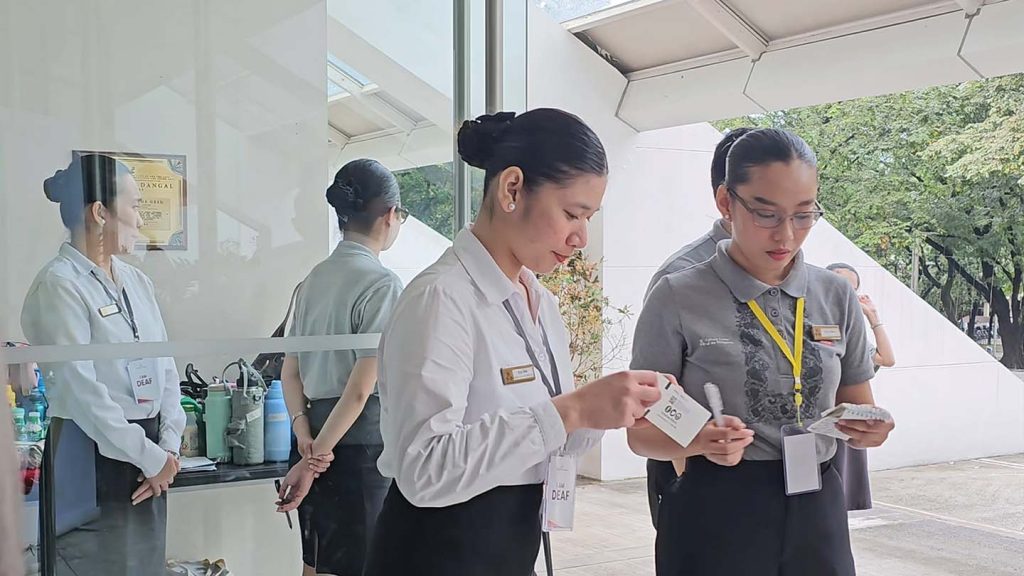
Recognizing the importance of communication in customer service, CCP expanded its language repertoire to include sign language as a vital part of audience engagement.
“Communication in the frontline service is an important engagement with our public. We endeavour to harness our mother tongue, English and a third language or dialect, with sign language not being any different. As we grow our pool of multi-linguals, we may be more effective in addressing our audience members,” said Ariel Yonzon, CCP Production and Exhibition Department Manager.
To ensure inclusivity, CCP instructors and facilitators took the extra step of learning sign language. Participants were also paired with hearing partners, fostering deeper collaboration and mutual understanding.
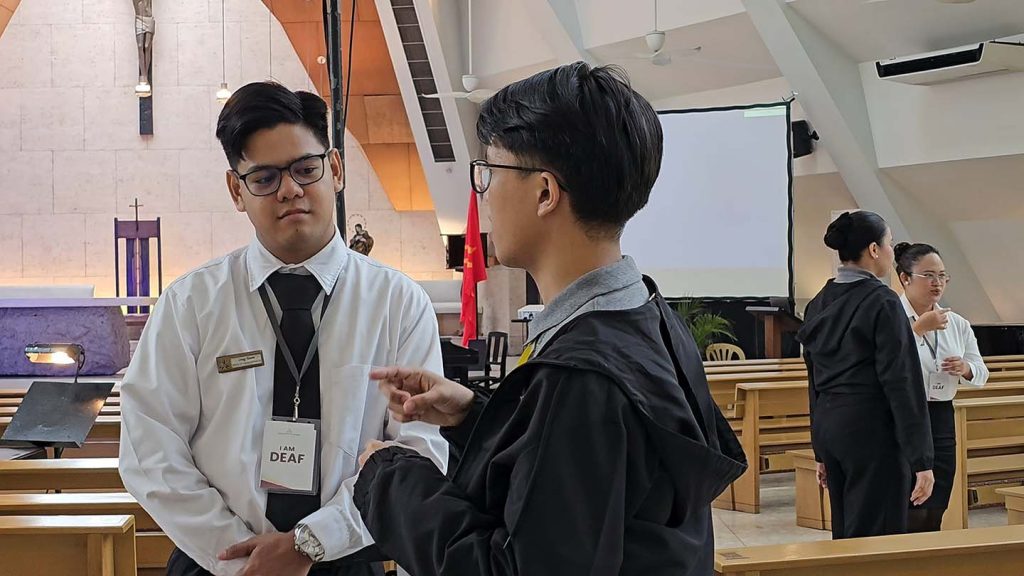
For many of the participants, the apprenticeship went beyond skill-building. Interpreters Bing Domantay and Shelly Tesoro noted that the trainees not only enjoyed meeting new people but also gained self-confidence through the prospect of inclusive cultural work.
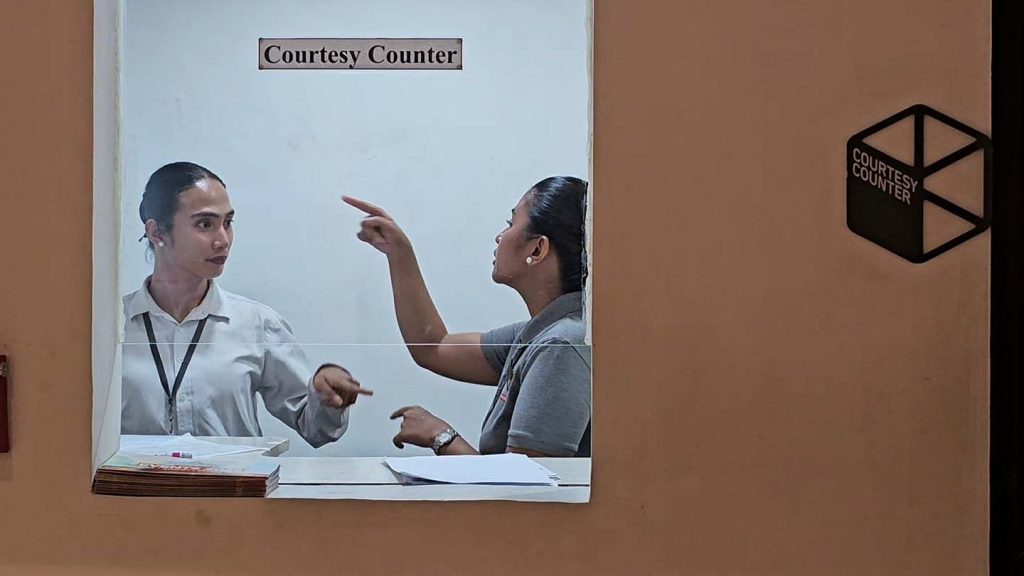
One of the participants, Dominique Kane Ison, signed how the apprenticeship program changed his life: “I love showing people how happy I am through my work. I realized that I’m also capable of ‘performing’ like the artists we see onstage.”
From sign language interpretation to captioned films, visual storytelling, and deaf-led productions, CCP has long championed accessibility in its programming. The FOH Apprenticeship Program extends this commitment by opening pathways for differently-abled youth to actively take part in cultural work and services.




